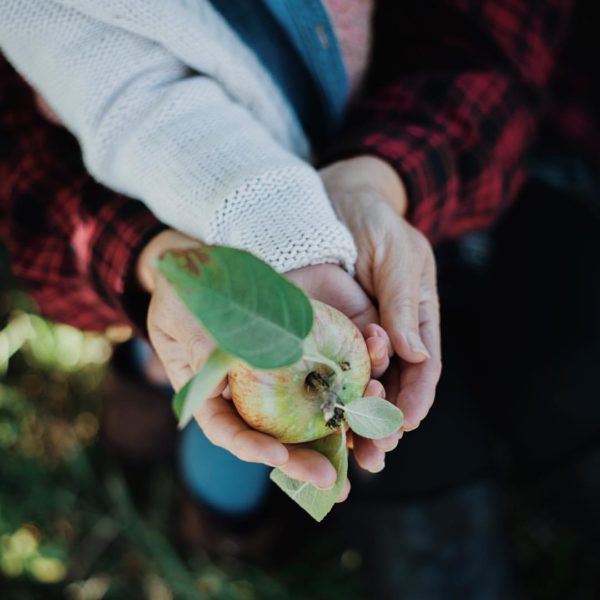Have you ever seen the commercial from that big home improvement store, where the couple starts out with plain dirt and 30 seconds later their yard is bursting with technicolor blooms? If only gardening was that easy! Sure, the end results are beautiful, but the reality is that gardening can be a lot of work and if you don’t follow some basic rules of gardening, you could end up with a glorified weed patch.

Now that it appears spring has finally arrived, it can be tempting to run out and buy all your plants and get them in the ground on that first warm day. But if you want a beautiful and productive garden, it might be helpful to set aside those pretty flower fantasies for just a moment, put your feet up and learn about the foundation for healthy and productive gardens.
Yes, dear reader, we’re going to talk about dirt! Probably the last thing you want to focus on this time of year. I know, I am not crazy about dirt either, but, if you are going to put the time and effort into gardening, you need to pay attention to your soil.
Soil provides structure and nutrition to help plants grow and space to hold water and oxygen until they can be utilized by the plant. The most healthy and productive gardens have soil that is well-drained, loose, fertile, and contains adequate organic material.
It’s rare to have soil that is absolutely perfect for gardening without having to amend it in some way. In our area, we have a lot of dense clay soil that holds water forever, which can result in rotted plant roots or fungal diseases. Some of us have sandy soil, where the water drains away immediately. Having to water your garden every day not only takes time and money, it also wastes our precious water resource. Other issues include soil that has been compacted by foot or vehicle traffic, soil in which nutrients have been depleted and soils that are too acidic or alkaline.
How do you know what soil you have and what condition it is in? You can read all about soils here. You can also submit a soil sample to the University of Minnesota Soil Testing Laboratory.
The good news is that whatever your soil problem may be, the solution is usually the same. To have great soil, you must add organic material such as compost, well-rotted/composted manure, peat moss, or perlite. You can even use other organic matter such as straw, sawdust, wood chips or shredded bark but these amendments will require some nitrogen fertilizer to aid in their decomposition. Add 3-4 inches of organic material to your soil per year and work this amendment into the top 10-12 inches of soil.
So, where do you obtain these organic materials? Many home improvement retailers, hardware stores and even some convenience stores carry bags of compost, peat moss and manure. Duluth is blessed to have our very own locally sourced compost, called Garden Green, produced by the Western Lake Superior Sanitary District. Garden Green has some great benefits. First, it’s produced with unwanted yard and food waste, giving local folks a place to dispose of these items and keeping them out of landfills. Second, the methods used in its production will kill most pathogens and weed seeds, leaving you with clean, healthy nutrition for your plants. You can also make your own compost.

If you are fortunate to know someone who owns farm animals, manure is another option for compost but you want to make sure it is well-rotted. If you apply manure that is too fresh to your garden, you could be exposing yourself to dangerous bacteria such as E. coli. It will also add too many nutrients in too high of a concentration for your plants and also transfer live weed seeds that survived life inside the animal. You certainly don’t want to be adding any more weeds to your garden! Never use waste from dogs, cats or pigs in your garden.
Why bother spreading manure around when you can have chickens do all the work! Keeping chickens is a great way to add organic material to your garden soil. Fence off a different section of your garden each year to use as as a chicken run. Be sure to work the soil in the fall so the chicken droppings have time to break down prior to spring planting. One nice bonus is that chickens will eat insect pests that threaten your plants but make your fencing high and sturdy enough so the chickens don’t help themselves to your garden bounty! If your chickens are particularly clever, you might even need to put some netting over their run.
Another green solution to add compost to your soil is planting a cover crop that, once grown, you can turn into the soil. Gardeners have used vetch, clover, beans, peas, ryegrass, oats, rapeseed, winter wheat, winter rye and buckwheat to create this “green manure.”
So, there you have it – the foundation for beautiful and productive gardens is good soil. Want to learn more about gardening? Watch for my upcoming post on gardening tips or check out the University of Minnesota’s Yard and Garden website, your comprehensive resource for everything you need to know about caring for your outdoor spaces.
Happy spring and happy gardening, everyone!










